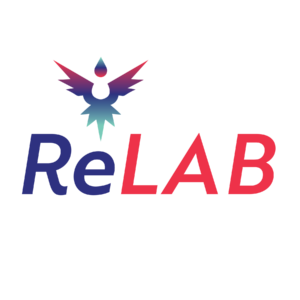Emergency Medical Care
You Have the Option to Seek Emergency Medical Care
If you have experienced sexual violence, you deserve care. Exams are available to anyone who was sexually assaulted regardless of alcohol consumption, drug use, sex work, gender and/or immigration status. Below you will find important information about sexual assault exams and emergency medical care.
There is no one “right way” to react to a rape or sexual assault. Emotional and physical reactions vary across all individuals and situations—whatever you’re feeling is okay. Please consider contacting an advocate if you would like to know more about responses to sexual assault.
Common Questions
If you have experienced sexual violence, you deserve care. You have the option to seek medical care as soon as possible at the closest emergency room or hospital emergency room that offers sexual assault exams. The exam will provide you with medical care including treatment of injuries, emergency contraception, and STI prevention medication. The exam will also collect any evidence of the sexual assault that might be on your body.
- Some emergency rooms have nurses and doctors specially trained to treat sexual assault survivors.
- An advocate may be able to meet you at the emergency room to offer support before, during, and after the exam.
- The nurse and advocate at the hospital can help you understand all of your options.
You may not know right now whether you will contact the police about your assault, and that’s okay. You don’t have to decide right away, and you don’t have to report to the police at all if it’s not right for you. You have a right to sexual assault exam regardless of whether you report to the police or not.
Minnesota has different reporting options that give you the time to make the best decision for your situation. A nurse and a sexual assault advocate can tell you more about these options. This is a good reason to seek forensic medical care at your local hospital.
- As soon as possible, seek medical attention at a facility that offers sexual assault exams, such as your local hospital emergency department.
- An examination provides immediate medical care by treating injuries and it serves as a means of collecting evidence through a medical forensic exam, an examination of a sexual assault patient by a health care provider (most often a nurse) who has specialized education and clinical experience in the collection of forensic evidence and treatment of sexual assault patients. “Forensic” means the scientific tests or techniques used in collecting evidence of a crime.
- The nurse and advocate at the hospital can help you understand all of your options.
Medical forensic exams are protected by medical privacy laws. In Minnesota you can have a sexual assault exam even if you are unsure about reporting the incident to law enforcement.
You are not responsible for paying for a forensic medical exam in Minnesota. The state is required to pay for the sexual assault exam.
Additional medical treatments such as optional medications or more serious injuries may need to be paid for by the patient or the patient’s insurance, per the patient’s agreement. Costs to the patient vary depending on the county, the hospital, and your unique situation.
An advocate can help answer more questions about the exam, exam payment, and other aspects of an emergency room visit.
- Seek medical care at the closest hospital emergency room or an emergency room where you feel comfortable going. Some emergency rooms have nurses and doctors specially trained to treat rape and sexual assault survivors. An advocate may be able to meet you at the emergency room to offer support before, during, and after the exam.
- The exam will provide you with medical care and collect any evidence of the rape that might be on your body. Forensic evidence is typically most viable if collected as soon as possible, but keep in mind that exams can usually take place up to 120-240 hours (5-10 days) after an assault. Additionally, many preventative medications are most effective if taken within a few days of an assault. To get a better sense of whether you are within a forensic exam window or not, please contact an advocate in your area. For more information on sexual assault kit testing, click the link below.
- Try not to take a bath or a shower, brush your teeth or go to the bathroom until you’ve gotten medical care. If you have already done some or all of those things, that’s okay! Evidence may still be available for collection. The nurse at the hospital can tell you more about this when you arrive for an exam.
- You have the option of providing the clothing and underwear you were wearing during the assault as forensic evidence. Consider bringing these articles of clothing in a paper (not plastic) bag and/or bring an extra change of clothes to the exam with you.
The exam will provide you with medical care, including medications to prevent pregnancy or sexually transmitted infections. Many preventative medications are most effective if taken within a few days of an assault.
Additional medical treatment such as medications or treatment of injuries may need to be paid by the patient or the patient’s insurance, per the patient’s agreement. Costs to the patient vary depending on the county and hospital. An advocate can tell you more about the services available in your area.
Abortion is legal in Minnesota and care is available to you. View the reproductive healthcare services page on our website for more information.


